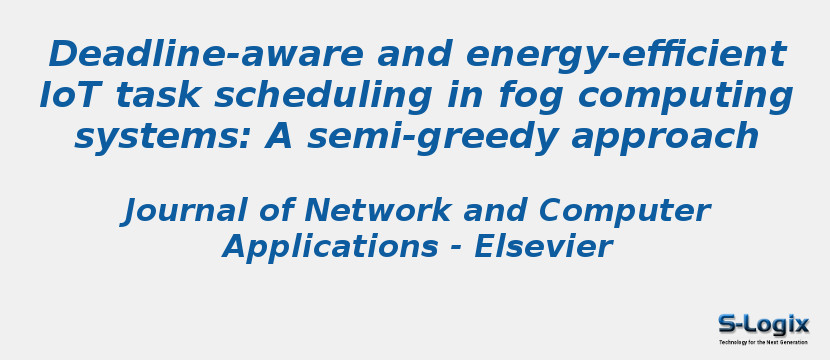Research Area: Fog Computing
With the rapid advancement of Internet of Things (IoT) devices, a variety of IoT applications that require a real-time response and low latency have emerged. Fog computing has become a viable platform for processing emerging IoT applications. However, fog computing devices tend to be highly distributed, dynamic, and resource-constrained, so deploying fog computing resources effectively for executing heterogeneous and delay-sensitive IoT tasks is a fundamental challenge. In this paper, we mathematically formulate the task scheduling problem to minimize the total energy consumption of fog nodes (FNs) while meeting the quality of service (QoS) requirements of IoT tasks. We also consider the minimization of the deadline violation time in our model. Next, we propose two semi-greedy based algorithms, namely priority-aware semi-greedy (PSG) and PSG with multistart procedure (PSG-M), to efficiently map IoT tasks to FNs. We evaluate the performance of the proposed task scheduling approaches with respect to the percentage of IoT tasks that meet their deadline requirement, total energy consumption, total deadline violation time, and the systems makespan. Compared with existing algorithms, the experiment results confirm that the proposed algorithms improve the percentage of tasks meeting their deadline requirement up to 1.35x and decrease the total deadline violation time up to 97.6% compared to the second-best results, respectively, while the energy consumption of fog resources and makespan of the system are optimized.
Keywords:
Author(s) Name: Sadoon Azizi,Mohammad Shojafar,Jemal Abawajy,Rajkumar Buyya
Journal name: Journal of Network and Computer Applications
Conferrence name:
Publisher name: Elsevier
DOI: 10.1016/j.jnca.2022.103333
Volume Information: Volume 201, May 2022, 103333
